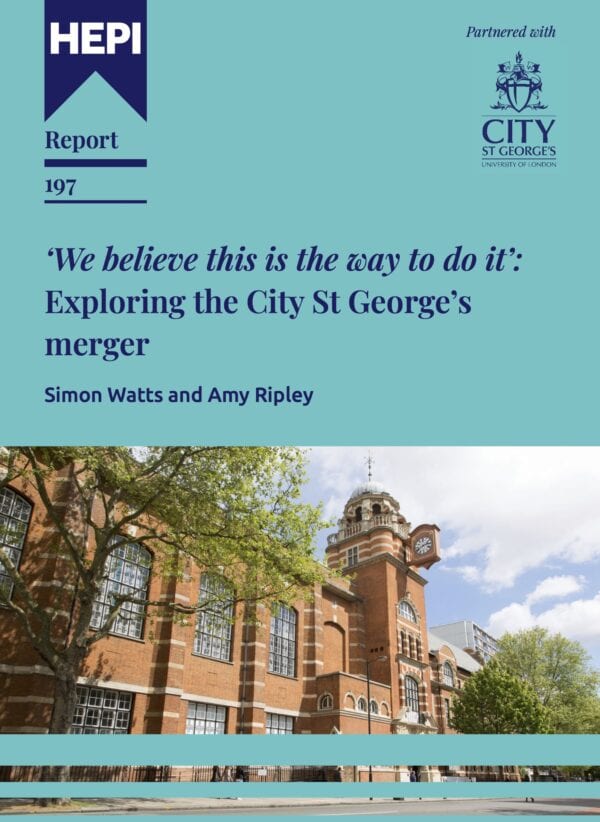Gender disparity in university leadership: what lessons can East Africa learn from the UK and Europe?
This blog was kindly authored by Naomi Lumutenga, Executive Director and co-founder of Higher Education Resource Services (East Africa).
Despite commendable interventions in recent decades, a gendered leadership gap persists at varying levels within higher education institutions. In 2024, women led 27% of the top 200 universities in the US; 36% in the top UK universities; 55% in the Netherlands’ top 11; and 29% in Germany’s top 21. In contrast, female leadership was far less common in Sub-Saharan Africa: only two of Ethiopia’s 46 universities, two of Tanzania’s 60, and six of South Africa’s 26 public universities were headed by women. While some may argue that comparisons with Western institutions are unfair due to their longstanding systems, the disparity highlights persistent structural barriers to gender parity in university leadership. Shifting focus from individual to organisational transformation can deliver change. As an example, long-standing financial systems have been leapfrogged. Currently, it is quicker to wire money to and within many African countries, compared to Europe or the USA. Linear comparisons along time periods, to effect change, do not, therefore, tell the full story; the real focus should be on the political will from within universities to acknowledge the value in and shift leadership towards gender parity.
Our organisation, (Higher Education Resource Services East Africa) addresses gender equality in universities, as these institutions shape future leaders. Prestigious institutions like the University of Oxford have produced multiple prime ministers and policymakers across the globe, as the recent HEPI / Kaplan Soft Power Index demonstrates. In East Africa, notable alumni of Uganda’s Makerere University include past and serving national leaders like veteran Mwalimu Julius Nyerere and Benjamin Mkapa (Tanzania); Mwai Kibaki (Kenya); Paul Kagame (Rwanda); Milton Obote (Uganda); and Joseph Kabila (Democratic Republic of Congo). However, Makerere University (unlike the University of Oxford) has never had a female Vice Chancellor.
The structure and landscape of such institutions matter because they model frameworks and practices for the communities they serve. The persistent unequal representation triggered the work of HERS-EA that culminated, in part, in our recent publication.
Findings from our unpublished study conducted in 2024 across 35 universities in East Africa illustrated the situation starkly. This study was conducted by Makerere University in collaboration with HERS-East Africa, supported by the Bill and Melinda Gates Foundation. The aim was to analyse the underlying barriers that prevent women from progressing into leadership and, for those who advance, from thriving. While some of the findings might be culturally unique to East African contexts, the majority were acknowledged, at the annual Engagement Scholarship Consortium conference in Portland, USA (October 2024), as being relevant to any higher education institution. In Japan, for example, there is evidence of cultural pressure exerted differently when women seek promotion; as Kathy Matsui asserts, women decline promotional offers for fear of how they might be treated when/if they get pregnant.
Our study of premier universities in East Africa found that, despite gender equality policies, female leadership remains rare: only two of seven top universities had a female Chancellor (a ceremonial role), none had a female Vice Chancellor, and just one had a female Deputy Vice Chancellor (who was nearing retirement). With respect to enrolment, while most institutions claimed gender parity at admission, few tracked or reported gender disaggregated data at graduation or PhD completion, and evidence of tracking progress was limited.
PhDs, research leadership, and grant management are important for university leadership, so we highlighted these areas and addressed implicit institutional norms. Drawing on these lived experiences, we concluded that gender discrimination in university leadership persists through biased job criteria, age limits, and interview questions. Other barriers include a lack of accountability, inadequate strategies against sexual harassment, and poor support for women to complete PhDs.
Co-created recommendations included trialling an adapted equivalent of the non-punitive Athena Swan Charter, which develops a culture of self-assessment while mitigating potential backlash. The Athena Swan Charter was initiated in the UK in 2005, and it is gaining global traction. It provides a sliding scale of progression towards gender equality, from bronze to silver and gold. Other proposed interventions included providing writing bootcamps with childcare and research advisors present, away from family and other distractions. Aspects of the quota system and structural frameworks in Scandinavian countries were discussed, but while lessons can be learnt from these transformational shifts, the real stumbling block is the lack of political will for changing norms rather than individual women within East African institutions. However, change is possible. Rwanda’s post-1994 Genocide national policies include quotas, and they are revised every three years to assess progress towards gender equality in all sectors. Currently, women hold 61.3% of the total seats in parliament, and they occupy 66% of the total seats in cabinets. Overall, Rwanda is now considered one of the best achievers in the world for gender equality. Perhaps lessons can be learnt from Rwanda’s progress that can give us all reason to hope.







Comments
Soraya Beukes says:
Thought provoking rendition of our unequal society in higher education leadership despite that women make up the lion share of the university population
Decades of gender equality activism has not reaped the desired results
To change the narrative we should band together to promote women in their absence to bring the prowess of an egalitarian system into play. Moreover when in power women should be deliberate and intentional to bring our sisters into the fray Women should recognise the talent of their sisterhood and give access to such talent To provide opportunities is not enough unless there is access to such opportunities
Let’s be hopeful that the strides made by Rwanda with women in politics will proliferate to the uplifting of women in vulnerable communities
It is imperative that the women in Rwanda bring the legacy in this regard Women in power owes the communities they come from to at least advance their stride This is the positive impact we hope for Women doing it for themselves #wedowe
Reply
Add comment